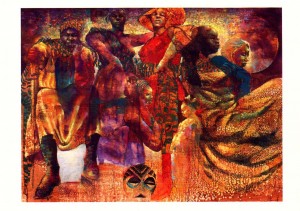October is Open Access Month!
In October the Library celebrates Open Access Month—a time to highlight the importance of making research and information more accessible without cost. Events throughout the month will showcase many ways in which people here at Northeastern and around the world are working to make Open Access a reality, including projects in which you can participate!
Open Access Month: Schedule of Events
Zotero in 30 Minutes
Tuesday, October 4, 2:00-2:30
DSC Media Lounge
Learn about using Zotero, one of the most well-known free, open source citation management tools, to organize your research. Track and gather all of your research in one place and automatically format citations and bibliographies—bring your laptop to get started right away.
DH Open Office Hours
Wednesday, October 5, 12:30-1:30
DSC Media Lounge
Understanding copyright and fair use in the Digital Humanities will be the focus of this week’s regularly scheduled DH Open Office Hours.
Citizen Science in Action with Zooniverse
Thursday, October 6, 4:00-7:00
DSC Media Lounge
Want to see how easy it is to contribute to citizen science research? Drop in for a hack-a-thon style session and work with us on a Zooniverse project! No prior experience is necessary. We’ll provide guidance (and pizza!), just bring a laptop or tablet to participate. More info available here! Refreshments will be served.
Wikipedia Edit-a-thon
Wednesday, October 12, 4:00-7:00
DSC Media Lounge
Join us to improve Wikipedia’s coverage of under-represented groups in Massachusetts and U.S. history. This hack-a-thon style session will focus on editing and updating Wikipedia pages in a group setting. You do not need any prior experience with Wikipedia to participate. We’ll provide guidance, just bring a laptop or tablet to participate. Refreshments will be served.
Managing Your Research Output for STEM Graduate Students
Thursday, October 13, 11:00-12:00
422 SL
Learn how and why to share your conference posters, presentation slides, codebase, and other products of your graduate research. Bring your questions about author rights, copyright, theses/dissertations, and anything else relevant to managing your output! We’ll provide info on resources available for you at the Library and elsewhere on campus.
DSG/NULab Fall Welcome Event
Monday, October 17, 3:00-6:30
90 SL
Join the DSG and NULab at 3:00 for a keynote by Dan Cohen, Founding Executive Director of the Digital Public Library of America. This event will also feature lightning talks by Northeastern students, staff, and faculty about their recent work in digital scholarship, from 4:00-5:15. It will end with an informal reception where you can continue the conversation with area colleagues. Because space is limited, please register at bit.ly/DSGNULab2016 by October 10. Refreshments will be served.
Decoding the Dragon
Wednesday, October 19, 12:00-2:00
DSC Seminar Space
Learn to read Northeastern University’s only medieval manuscript with faculty member Erika Boeckeler. Write Gothic letters with quills, tweet using medieval texting (aka abbreviationes), get a parchment souvenir and a Gothic henna tattoo. Level up through activities to become a “scribe” and contribute original research that will integrate into the manuscript’s website. We’ll provide guidance (and pizza!), just bring a laptop or tablet to participate. Refreshments will be served.
Sourcing Multimedia for Your Course
Thursday, October 20, 10:30-12:00
140 SL
The Internet offers a variety of public domain and Creative Commons images, movies, and documents that may be used to support teaching and learning. Learn strategies for finding relevant media and crediting the media appropriately.
Hosted by Academic Technology Services
Creating Interactive Open Educational Resources
Friday, October 21, 1:00-3:00
140 SL
This course will show you the basics of using Storyline to create interactive educational resources. You’ll learn how to incorporate open source multimedia, create your own text, audio, and image content, and create interactive features. Finally, we’ll discuss options for publishing on the web and posting to open educational resource aggregator sites.
Hosted by Academic Technology Services
Storing and Sharing Files Using the Digital Repository Service
Monday, October 24, 2:00-3:00
DSC Media Lounge
Did you know the library can help you preserve your project and research materials, while also making those materials accessible on the web? This session will introduce faculty, staff, and students to the Digital Repository Service, the library’s trusted resource for storing digital materials created or acquired by the Northeastern community.
Data Management Plans and the DRS
Tuesday, October 25, 12:30-1:30
DSC Media Lounge
How can you effectively share and preserve research data while fulfilling grant requirements? This session will describe the library’s support for research data management, including the DMPTool as an option to generate data management plans, and the Digital Repository Service as an option for preserving and sharing research data. Refreshments will be served.
Film Screening & Discussion: The Internet’s Own Boy
Tuesday, October 25, 4:00-6:00
90 SL
Join us for a screening of a special one-hour edit of this documentary about programmer and Internet activist Aaron Swartz. An audience-guided discussion will follow the film. Refreshments will be served.
Archival Collections Transcribe-a-thon
Wednesday, October 26, 4:00-7:00
DSC Media Lounge
Digitized collections of manuscripts and ephemera need help from human eyes to be more useful to readers and researchers. We’ll highlight several major archives where anyone can participate in transcribing digitized materials online and get you started on some of these fascinating projects, which range from historical restaurant menus to explorers’ logbooks to anthropologists’ field notes. Drop in at any point during the session and bring a laptop or tablet to participate. More info available here! Refreshments will be served.
Hypothes.is in 30 Minutes
Friday, October 28, 11:00-11:30
DSC Media Lounge
We’ll go over the basics of how to use this open-source annotation tool in your research and teaching! For more information and to sign up for an account in advance, visit hypothes.is.



